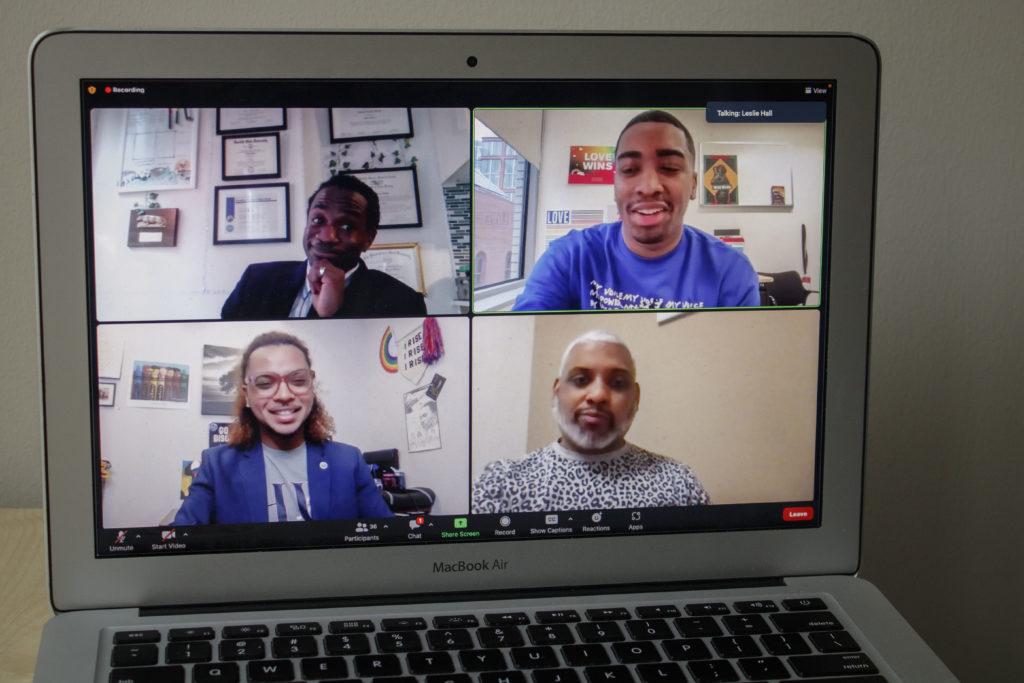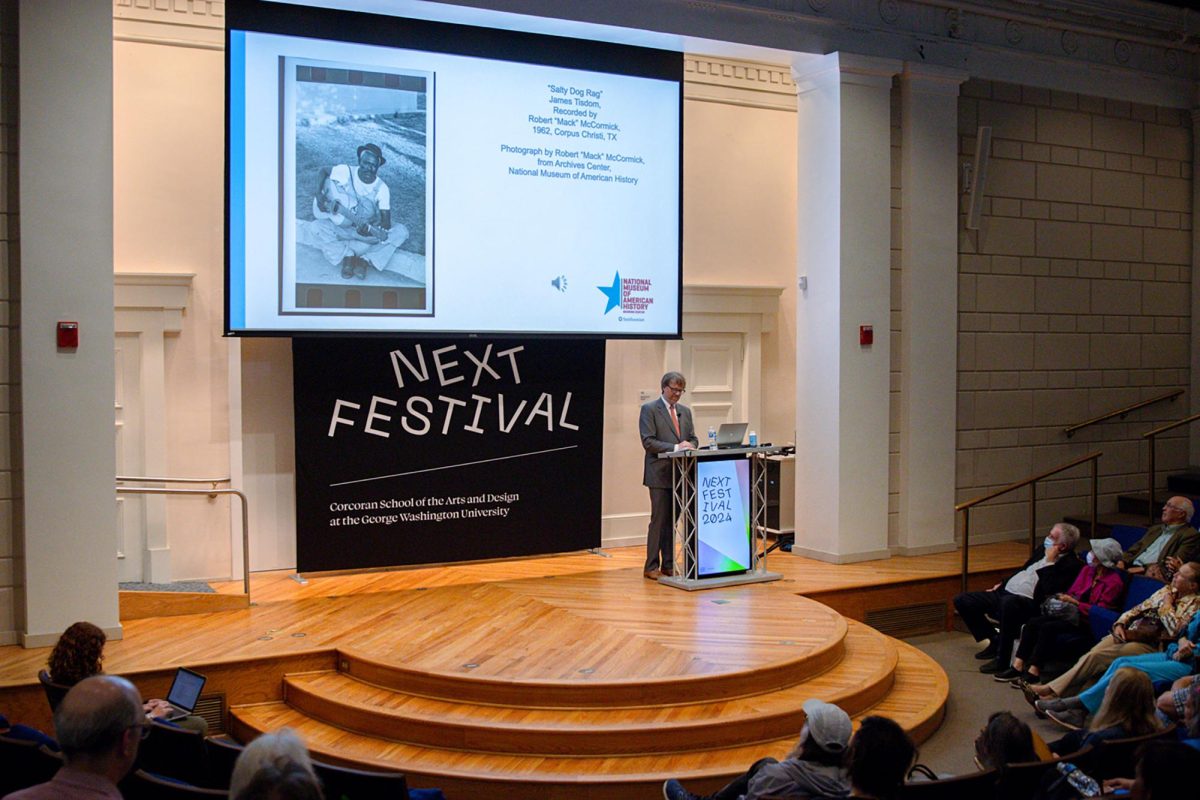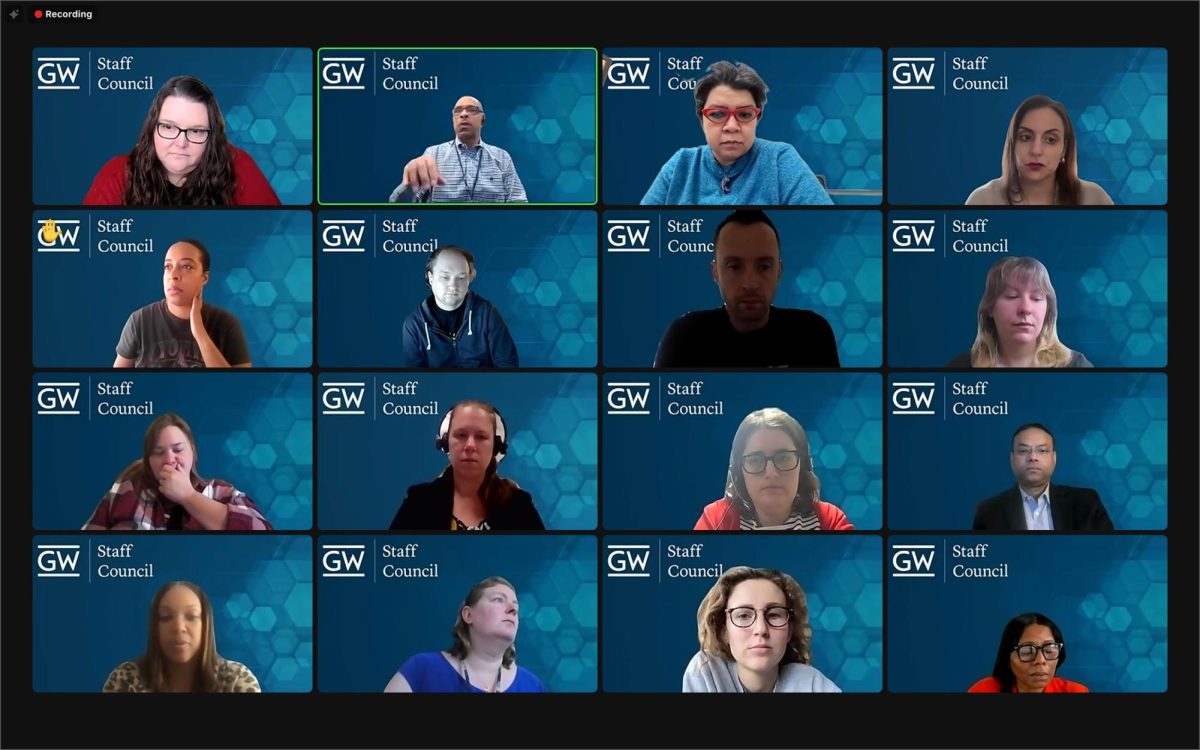Three panelists discussed the intersection of Black and queer history in an event Wednesday, with topics ranging from defining queerness to advocating for LGBTQ+ students on campus.
Panelists Leslie Hall, A.J. King and Jose E. Cadiz, who all have backgrounds in LGBTQ+ advocacy, discussed the intersection between the Black and queer communities and responded to recent conservative pushback on the teaching of Black queer studies like Florida’s ban on Advanced Placement African-American Studies. The Graduate School of Education and Human Development hosted the virtual event, which was moderated by Assistant Professor Dwayne Wright, GSEHD’s director of diversity, equity and inclusion initiatives.
Cadiz, the director of the Intercultural Affairs and LGBTQ+ Resource Center at Howard University, said if he received a chance to respond to politicians who question the teaching of Black queer topics like Florida Gov. Ron DeSantis, R-FL, he would encourage him to listen to LGBTQ+ people and their families about their experiences when they and their loved ones are given the chance to express their sexuality and gender identity freely.
King, the assistant director of the Multicultural Student Services Center and LGBTQIA+ Resource Center at GW, said his office created multiple initiatives, including the MSSC’s events during Trans Awareness Week, to advocate for transgender and nonbinary students, who often face a historical lack of representation.
“We’ve got to be the voice for those who don’t have the opportunity to have a voice and make room so that they can eventually have a voice,” King said.
King also spoke about what the word “queer” meant to him and how it challenges societal norms of gender and sexuality.
“For me, queer is really the deviation from heteronormative practices and gender and sexual expression that is viewed as the norm under patriarchy,” Hall said.
Hall, the director of the Historically Black Colleges and Universities Program at the Human Rights Campaign, said he personally does not identify as queer but instead as a Black, gay man and noted how generational differences are a part of this distinction. There is an ongoing debate in the LGBTQ+ community about the usage of the term and its past history as a harmful slur, sometimes with older generations treating it with apprehension.
“I’m on the older end of the millennial spectrum, and so queer is not, that wasn’t it back then,” Hall said. “But I truly understand it as an umbrella, political term, and really a term of resistance.”









